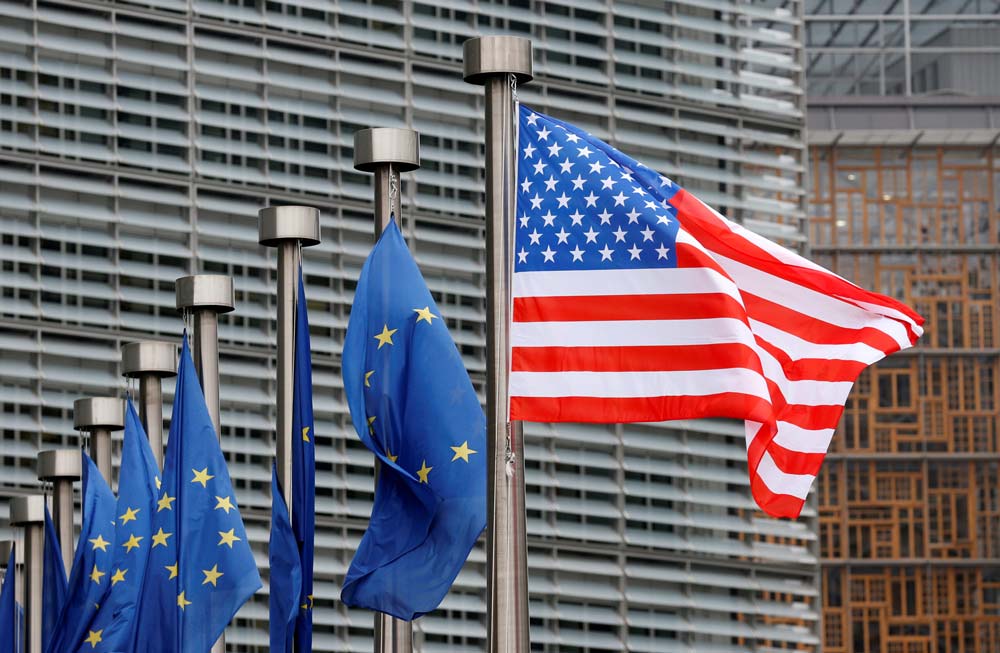In a significant turn of events, the European Union (EU) announced on Monday that it will postpone its planned tariffs on U.S. goods for six months. This decision follows a landmark trade agreement reached between U.S. President Donald Trump and European Commission President Ursula von der Leyen during their meeting in Turnberry, Scotland, on July 27, 2025.
The EU Commission’s spokesperson for trade described the agreement as a step toward restoring “stability and predictability” for businesses and citizens on both sides of the Atlantic. “The EU continues to work with the U.S. to finalize a Joint Statement, as agreed on July 27,” the spokesperson said in an official statement.
The Agreement and Its Implications
President Trump announced a trade deal that includes a 15% tariff on most European goods entering the U.S., including automobiles — a move that has stirred debate among policymakers and businesses. In return, the EU has agreed to remove tariffs on U.S. industrial goods and commit to purchasing $750 billion worth of U.S. energy, along with investing an additional $600 billion above current levels into the American economy.
The EU’s decision to delay its retaliatory tariffs, which were originally scheduled to take effect on August 7, 2025, marks a major concession by one of the United States’ largest trading partners. This delay provides a window for further trade negotiations aimed at solidifying the newly agreed terms and avoiding a potential trade war.
White House Response
Despite the apparent progress, the White House has yet to release an official response to the EU’s announcement. The deal has drawn mixed reactions domestically, with some praising Trump for securing significant economic concessions from the EU, while others express concern over the potential impact of the new tariffs on American consumers and industries.
Broader Context
This development comes amid ongoing global trade tensions under President Trump’s administration. Last month, Trump extended tariffs on Mexican goods, imposed a universal 50% tariff on copper imports, and faced criticism for firing the commissioner of labor statistics over weak jobs data. These moves have raised questions about the long-term impact of the administration’s trade policies on the U.S. economy and global trade dynamics.









